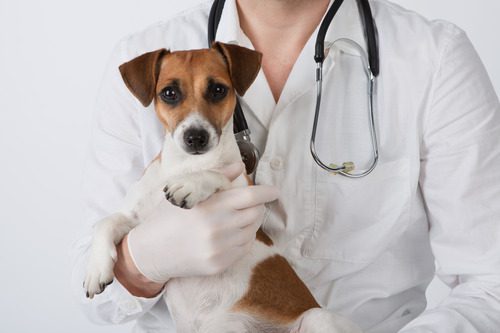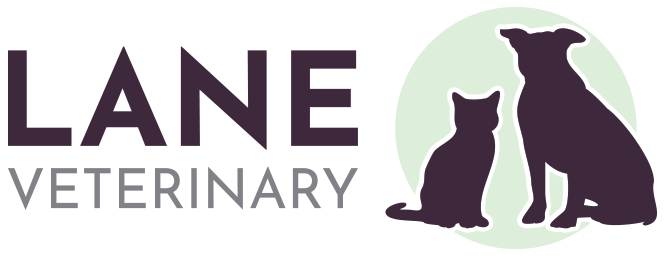What Is Parvo?
Imagine bringing home a joyful, tail-wagging puppy, only to have that happiness interrupted by sudden illness. For many pet owners, the word “parvo” is one they hope to never hear—but it’s a reality that can affect unvaccinated dogs and puppies at any time. This highly contagious virus is not only serious but also preventable with the right steps. At Lane Veterinary in Hinsdale, IL, we can help you understand what parvo in dogs is and how to protect your beloved pet from its potentially life-threatening effects.

What is Parvo in Dogs?
Canine parvovirus, commonly referred to as parvo, is a viral infection that attacks rapidly dividing cells in a dog’s body. The virus primarily targets the intestinal lining, causing severe gastrointestinal symptoms, but it can also affect the bone marrow and heart. Dogs infected with parvo often experience extreme dehydration and immune system suppression, making the disease particularly dangerous.
Spotting the Signs of Parvo in Your Dog
While symptoms can vary, some of the most common signs of parvo in dogs include:
- Severe diarrhea: Often bloody, this symptom leads to dehydration and electrolyte imbalances.
- Vomiting: Dogs with parvo frequently vomit, which exacerbates fluid loss.
- Lethargy: Infected dogs typically display extreme fatigue and a lack of interest in activities.
- Fever or hypothermia: Body temperature fluctuations are common as the immune system struggles to fight the virus.
- Loss of appetite: Dogs with parvo often refuse to eat, further weakening their bodies.
- Weight loss: Rapid weight loss is common due to fluid depletion and lack of nutrition.
These symptoms can escalate quickly, so prompt veterinary care is essential if your dog exhibits any of these signs. Call Lane Veterinary at (630) 320-6644 to schedule an examination if you suspect your dog has been exposed to parvo.
How Does Parvo Spread?
Parvo is an incredibly contagious virus that spreads through exposure to infected feces. Even a small amount of contaminated material can transmit the virus. Dogs can pick up parvo in communal spaces like dog parks, kennels, or training facilities. Once infected, a dog can shed the virus in their feces for up to four weeks, even if they no longer show symptoms.
Environmental Persistence
What makes parvo in dogs particularly challenging to contain is its ability to survive in the environment. The virus can remain infectious on surfaces, soil, and even clothing for months. This resilience means thorough cleaning and disinfection are crucial to prevent further spread.
Dogs at Risk
While any unvaccinated dog is vulnerable, puppies are at the highest risk.
Protecting Your Dog Against Parvo
Prevention is the most effective way to protect your dog from parvo. Vaccination plays a critical role in building immunity against the virus. Puppies should receive their first parvo vaccine between six and eight weeks of age, with booster shots administered every three to four weeks until they are 16 weeks old.
Additional Preventative Measures
- Avoid taking your puppy to high-traffic dog areas until they are fully vaccinated.
- Clean and disinfect your dog’s belongings, especially if they’ve been in contact with other dogs.
- Be cautious when introducing your dog to new animals, particularly those with unknown vaccination histories.
If you have questions about vaccinations or your dog’s risk of parvo, call Lane Veterinary at (630) 320-6644 for expert advice.
Diagnostic Methods for Parvo in Dogs
Diagnosing parvo involves a combination of clinical symptoms and laboratory tests. Veterinarians often begin by examining your dog’s medical history and physical symptoms. A fecal test is the most common diagnostic tool, as it detects the presence of parvovirus in stool samples.
Why Diagnosis is Urgent
Parvo in dogs progresses rapidly, so timely diagnosis is critical to improving your dog’s chances of recovery. The earlier the disease is detected, the sooner your veterinarian can begin supportive care. If you notice symptoms or suspect exposure, contact Lane Veterinary without delay.
How Veterinarians Treat Parvo in Dogs
There is no cure for parvo, but supportive care can significantly improve a dog’s chances of survival. Treatment focuses on alleviating symptoms and preventing complications such as dehydration or secondary infections. The potential treatment options include:
- Fluid therapy: Intravenous fluids are essential to combat dehydration and restore electrolyte balance.
- Medications: Anti-nausea drugs, antibiotics, and pain relievers may be used to manage symptoms and prevent bacterial infections.
- Isolation: Infected dogs are kept in isolation to prevent the virus from spreading to others.
Why Parvo Prevention is a Lifesaver
Protecting your dog from parvo begins with awareness and proactive care. This highly contagious virus can have devastating effects, but knowing the signs, understanding how it spreads, and prioritizing vaccination can make all the difference. Whether you’re raising a playful puppy or caring for an older unvaccinated dog, vigilance is key. At Lane Veterinary, we are your partner in safeguarding your dog’s health. If you suspect your dog may have been exposed to parvo or want to discuss prevention strategies, call us at (630) 320-6644.
Recent Posts
About Us
Choosing a vet means entrusting your pet’s care and well-being to capable hands. Lane Veterinary strives to be a lifetime vet for you and your family, being the people you can always lean on for support and guidance. As a privately owned practice, we stand to give people and their pets the one-on-one care and attention they deserve in a calm and comfortable setting.
